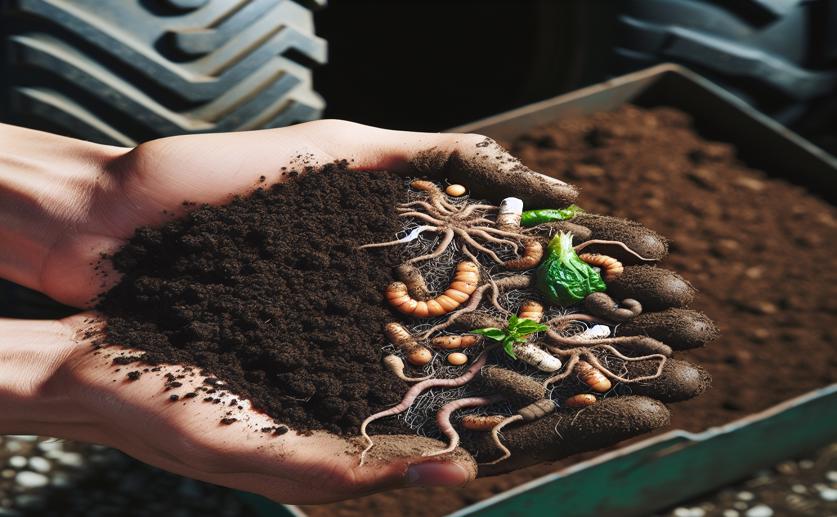
Soil from Organic Farms Boosts Disease Defense in Other Soils
Greg Howard
2nd March, 2024

Image Source: Natural Science News, 2024
Key Findings
- Indian study shows organic soil microbes can make wheat-growing soil resist diseases
- Treated soil reduced wheat disease and improved soil nutrients and enzyme activity
- This simple method could boost sustainable farming and yields, especially in developing nations
AgricultureEnvironmentPlant Science
References
Main Study
1) Transplantation of soil from organic field confers disease suppressive ability to conducive soil.
Published 28th February, 2024
https://doi.org/10.1007/s11274-024-03895-2
Related Studies
2) Exploring rhizo-microbiome transplants as a tool for protective plant-microbiome manipulation.
3) Role of Fungi in Imparting General Disease Suppressiveness in Soil from Organic Field.
4) Deciphering the mechanism of fungal pathogen-induced disease-suppressive soil.



 25th January, 2024 | David Palenski
25th January, 2024 | David Palenski